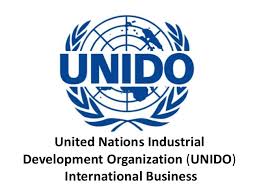 Participants from 33 counties attended a training course on sustainable energy, organized by the United Nations Industrial Development Organization (UNIDO) at the Jomo Kenyatta University of Agriculture and Technology in the capital of Kenya, Nairobi.
Participants from 33 counties attended a training course on sustainable energy, organized by the United Nations Industrial Development Organization (UNIDO) at the Jomo Kenyatta University of Agriculture and Technology in the capital of Kenya, Nairobi.
The five-day course was supported by the Kenya Council of County Governors. It demonstrates the shift in energy delivery responsibility from the national Government to counties as stipulated under the new constitution.
“Taking into consideration the urgent need to build institutional capacity of the counties, UNIDO introduced this course in order to develop sustainable energy plans and oversee their subsequent implementation,” said Jossy Thomas, who manages the project at UNIDO.
Speaking at the opening ceremony, Governor Mandago, who heads the Infrastructure and Energy Committee at the Council of Governors, highlighted Kenya’s enormous renewable energy potential, saying that locally available renewable energy resources can bring down the cost of modern energy services in rural areas. In addition, this would also contribute to the efforts of mitigating global warning, he said.
The training course introduced three main components of renewable energy planning at county level.
The first one is the current usage of energy within the county, the nature of the users, the existing sources, such as fossil fuels and unsustainable biomass, and also the utilization technologies available. The second component relates to available local renewable energy sources and the possible conversion technologies and programmes county planners can identify, as well as potential renewable energy projects for specific counties. Lastly, the scope and rank of potential projects.
“At the heart of such planning are four clear benefits that each county stands to gain from renewable energy. They include increased household access to clean and affordable energy and services; greater business competiveness; improved county economics; and concrete environmental benefits,” said Thomas.
This training course was organized under a UNIDO project funded by the Global Environment Facility (GEF), titled “Sustainable conversion of waste to clean energy for greenhouse gas emissions reduction in Kenya” and finished on 12th August.
Source: unido.org

